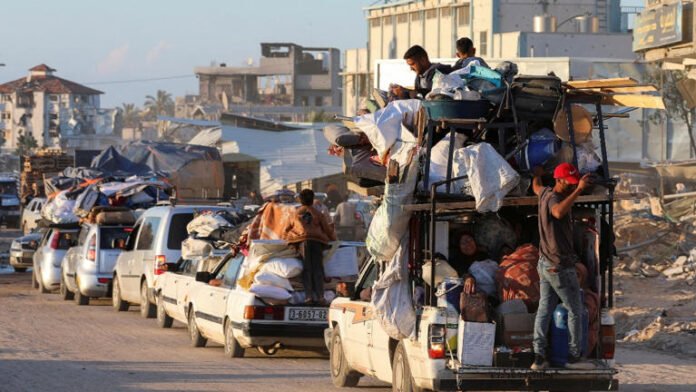In the ongoing conflict between Israel and Hamas, tensions have escalated further as Israel initiates a military offensive in the Rafah region of Gaza, rejecting Hamas’s proposed ceasefire agreement. This latest development underscores the deep-rooted animosity and complex dynamics that have defined the Israeli-Palestinian conflict for decades.
The Rafah offensive comes amidst a wave of violence that has engulfed the region, resulting in civilian casualties and widespread destruction. Israel’s decision to launch the offensive signals a resolute stance against Hamas, the militant group that controls the Gaza Strip, and its continued provocations against Israeli territories.
Hamas, for its part, had put forth a ceasefire proposal aimed at de-escalating the conflict and alleviating the humanitarian crisis in Gaza. However, Israel has rebuffed these efforts, citing concerns over Hamas’s intentions and its history of violating ceasefires in the past.
The rejection of the ceasefire agreement underscores the deep-seated mistrust between the two sides, with neither willing to back down from their entrenched positions. For Israel, ensuring the security of its citizens remains paramount, while Hamas continues to resist what it perceives as Israeli occupation and aggression.
The Rafah offensive is likely to intensify the already dire humanitarian situation in Gaza, where residents have been grappling with shortages of essential supplies, including food, water, and medical aid. The escalation of violence further compounds the suffering of civilians, many of whom are innocent bystanders caught in the crossfire.
The international community has been quick to condemn the violence and call for an immediate cessation of hostilities. However, efforts to broker a lasting peace deal have thus far proven elusive, with deep-rooted grievances and geopolitical complexities hindering progress.
The United Nations and other humanitarian organizations have called for unrestricted access to Gaza to provide much-needed assistance to civilians affected by the conflict. However, access remains limited due to the ongoing hostilities and security concerns.
As the conflict escalates, there are growing concerns about the potential for further destabilization in the region. The Israeli-Palestinian conflict has long been a flashpoint for regional tensions, with implications that extend far beyond the borders of Israel and Gaza.
In addition to the immediate humanitarian concerns, the conflict has broader geopolitical implications, with regional and global powers closely monitoring the situation. Any escalation in violence has the potential to draw neighboring countries into the fray, further complicating efforts to achieve a peaceful resolution.
Amidst the chaos and uncertainty, the voices of ordinary Israelis and Palestinians yearning for peace often go unheard. The cycle of violence perpetuates a sense of fear and despair, leaving little room for dialogue and reconciliation.
Ultimately, the path to lasting peace in the region lies in dialogue, compromise, and a genuine commitment to addressing the underlying grievances of both sides. Until then, the cycle of violence is likely to continue, with innocent civilians bearing the brunt of the conflict’s devastating consequences.

